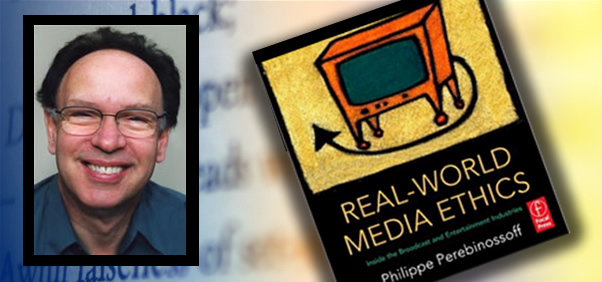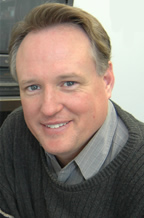Ethical Questions
New Book Provides Ethical Guidance for Those Working in Media Fields
December 3, 2007
By Pam McLaren
With the speeded up world of technology, including the ability to post photos and videos online almost instantly — what is fair and what is not? Is it ethical to ignore an “off-the-record” request? Write a story without attribution? Broadcast the names and faces of victims of violence? Advocate for a certain product/position/individual? Should you bluff or lie when negotiating a business deal?
Philippe Perebinossoff, assistant professor of radio/TV/film, is lead author of a new book takes a practical point of view when it comes to discussing what is ethical and what is not in the media. “Real-World Media Ethics” is scheduled for release in February by Focal Press.
Perebinossoff wrote nine of the chapters in the book. Carol Ames, assistant professor of communications, authored a chapter dealing with public relations; Jeffrey H. Brody, professor of communications and a former Orange County Register reporter, wrote a section on journalism; Brian Gross, a former lecturer in radio/TV/film, covered new media; and Martin Carlson, business affairs executive at Fox Television, authored the chapter on business ethics. The book also contains a special Web supplement prepared by Ed Fink, chair and professor of radio/TV/film containing works by Cal State Fullerton students.
“The goal was to go beyond ethical issues in journalism or theory and provide more real-world situations,” said Perebinossof, who was a director and executive with ABC and Disney before entering the classroom as an educator. “I wanted to give real life examples and then ask the reader, ‘what would you do in this situation?”
The biggest issues, he noted, come from “having to respond quickly, thinking on your feet — which I was never able to do — and then perhaps making a wrong decision or saying something you shouldn’t.
“You have to be especially careful with things that are posted on the web. The focus of first over right says it in a nutshell.”
Among the examples in the book: violating the “off the record” request, such as was claimed by NBC Chairman Ben Silverman in his interview by Esquire Magazine, and docudramas such as the one on Ronald Reagan that was seen as a kick to a former president when he was unable to defend himself, or “Path to 911” that was criticized as an unfair portrait of the Clintons.
But beyond the big issues, Perebinossoff said he wanted to give media students and those in the field direction: should they date someone they work with? Should they pick up the boss’s laundry?
“People want to be able to say ‘I’ve lived an ethical life,’” he said. “Some people say that they just know what’s right or wrong, but it’s not always that easy — there are more gray areas.”





